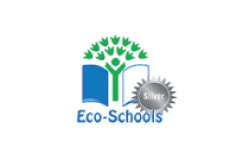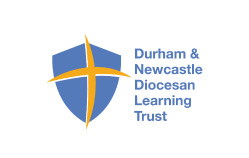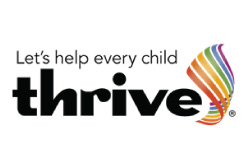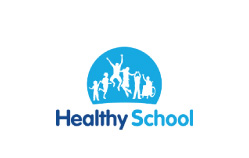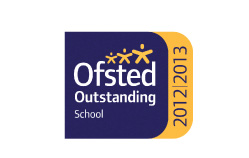The Curriculum is all the planned activities that the school organises in order to promote learning, personal growth and development.
Early Years Curriculum
All aspects of children’s growth and development are woven together but can be separated into 7 different areas of learning. These areas are consistent with the Early Learning Goals within the Early Years Foundation Stage for 0-5 year olds. The 7 areas are split into 3 Prime Areas (these are the areas the children should mostly develop first) and 4 Specific Areas (these will develop as the child grows).
The Prime Areas:
- Communication and Language
- Physical Development
- Personal, Social and Emotional Development
The Specific Areas:
- Literacy
- Mathematics
- Understanding the World
- Expressive Art and Design
These 7 areas are used to plan your child’s learning and activities. We make sure that the activities are suited to your child’s unique needs. The Early Years Curriculum is designed to be really flexible so that we can follow your child’s unique needs and interests and activities are often child initiated.
National Curriculum (Year 1 – Year 6)
Our Curriculum not only includes the requirements of the National Curriculum (2014), but also the range of additional opportunities that the school organises in order to enrich the experiences of our children. This includes a variety of Educational Visits out of school and a wide range of visitors and events in school.
What does our Curriculum look like?
Stanhope Barrington Church of England Primary School is committed to providing an education which includes and stimulates every child, regardless of ability. We have pupils with a wide range of abilities and different needs and we endeavour to include them in all activities, providing them with the opportunity to fulfil their potential. We recognise that some pupils will need extra support and adaptations to access the school curriculum and to participate in school activities.
Our Aims:
- To ensure all pupils have access to the school curriculum and all school activities.
- Help all pupils achieve to the best of their abilities, despite any difficulty or disability they may have.
- Ensure that teaching staff are aware of and sensitive to the needs of all pupils, teaching pupils in a way that is more appropriate to their needs.
- Pupils to gain in confidence and improve their self-esteem.
- To work in partnership with parents, pupils and relevant external agencies in order to provide for children’s special educational needs and disabilities.
- To identify at the earliest opportunity, all children that need special consideration to support their needs (whether these are educational, social, physical or emotional).
- To make suitable provision for children with SEND to fully develop their abilities, interests and aptitudes and gain maximum access to the curriculum.
- Ensure that all children with SEND are fully included in all activities of the school in order to promote the highest levels of achievement.
- To promote self worth and enthusiasm by encouraging independence at all age and ability levels.
- To give every child the entitlement to a sense of achievement.
- To encourage tolerance and understanding of all children.
- To regularly review the policy and practise in order to achieve best practise.
All pupils follow the National Curriculum at a level and a pace that is appropriate to their abilities. Our SEND philosophy places SEND children at the heart of personalised learning and our curriculum is tailored to meet individual pupils needs.
Support Provision
At times and when it is felt appropriate, modifications to the curriculum may be implemented to successfully match pupil ability to the curriculum. We provide a wide range of support strategies which are tailored to meet the needs of the individual child these may include:
- A range of teaching and learning styles
- Differentiated learning materials
- Access to ICT and Technology
- Additional in-class support
- Additional out of class support
- Many Enrichment and Enjoyment opportunities to stimulate and motivate learning
- Flexible groupings including small group work or peer support
- An innovative and supportive curriculum
- The appropriate use of rewards and sanctions
- A broad range of extra-curricular activities
- Assessment procedures that emphasis children’s strengths and achievements
- Celebration of achievements in all areas of the curriculum
- Application during national testing at KS2 to obtain access arrangements as appropriate
Support Provision for children with Social, Emotional or Mental Health (SEMH) Needs
A number of our staff are trained to deliver or facilitate various intervention programmes which can support children with SEMH. We can provide:
- Getting Along Programmes
- Therapeutic Story Writing
- Buddies and Mini-Buddies
- School Councillors
- Time out area
- Individualised Programmes
Staff Training and CPD
Our team are trained in specific interventions and are also able to deliver individualised intervention programmes depending upon the need of the child.
We ensure our team are continually updated with SEND training and professional development. When a child has a specific need we endeavour to ensure our team are trained to respond their specific needs. Our current skill base is as follows:
- SENCO with 17 years experience
- A number of our team have completed NVQ L2 in Understanding Autism
- Dyslexia
- Dyscalculia
- Dyspraxia
- Getting Along Programme
- Therapeutic Story Writing
- Art based therapies
- Lexia
- Nessy (Computerised programme for children with Dyslexia)
- Toe by Toe
- To the Power of … (a programme designed to improve basic maths skills)
- LEGO Therapy
- Team Teach
- SNIP (a visual based spelling programme for children with dyslexia)
- Visual perception programmes
- Experience of working with children with Autism
- Supporting children with SMEH
- Our SEND Governor is very experienced in the area of SEND

